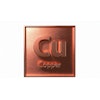
Female radiation oncologists submit fewer Medicare charges and collect less revenue than their male counterparts in both private-office and hospital practice settings, according to a study published March 22 in JAMA Network Open.
The findings demonstrate that further research is needed to understand the sex-based barriers to economic advancement within radiation oncology, wrote a team led by Dr. Luca Valle of the University of California, Los Angeles.
"Numerous studies have described the trend of men earning more than women at many stages of their careers, but these differences are often attributed to different career choices made by men and women in medicine, including the decision to enter less remunerative specialties and work fewer hours," the researchers wrote. "However, among a homogenous group of academic physicians, a substantial unexplained salary gap has been shown to persist even after adjustment for specialty, academic productivity, and work hours."
To assess sex iniquities in the field of radiation oncology, Valle and colleagues evaluated differences in productivity, practice scope, and payments using 2016 data from the U.S. Centers for Medicare and Medicaid Services (CMS) Physician and Other Supplier Public Use File (POSPUF). They identified charge and payment information for 4,393 radiation oncologists: 1,133 women and 3,260 men.
The researchers tracked the following in both office and hospital practice settings:
- Productivity (number of Medicare charges)
- Payments (total Medicare payments, as well as mean payments per charge submitted and per beneficiary treated)
- Practice scope (number of unique Medicare billing codes)
Valle and colleagues noted the following results, which were statistically significant:
- In the office setting, female radiation oncologists turned in a mean of 1,051 fewer charges than their male counterparts, collected a mean of $143,610 less in revenue, and used a mean of 1.32 fewer unique billing codes.
- In the hospital setting, female radiation oncologists turned in a mean of 423 fewer charges than their male counterparts, received a mean of $26,735 less in revenue, and used a mean of 1.28 fewer unique billing codes.
In the office setting, women made up 54 of the 326 most productive physicians (16.6%) and collected $345,944 less in revenue than their similarly productive male colleagues. In the hospital setting, women represented 46 of the 397 most productive physicians (11.6%) and collected $33,026 less than their similarly productive male counterparts.
Rectifying sex-based differences is crucial to the health of the specialty, the authors believe.
"Understanding how sex is associated with physician activity and reimbursement in oncology is critical to moving toward a more equitable profession, whereas failure to identify and address potential barriers to economic advancement within radiation oncology may collectively weaken the specialty by further discouraging women from entering the field," they concluded.




















